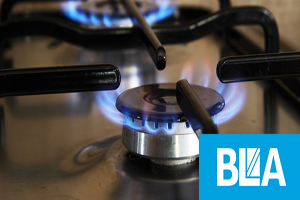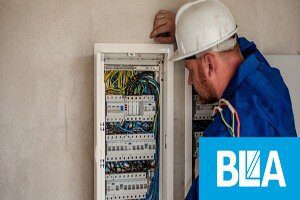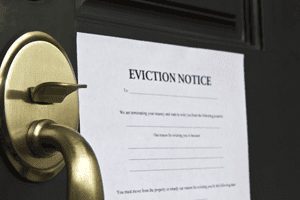Landlord gas safety certificate Guidance 2024
Landlord gas safety certificates are required for a residential rental property each year. The checks must only be carried out by a gas-safe engineer.
Private landlords and corporate landlords with residential properties must all comply with the legislation.
Landlords are legally responsible for their rental property and have a duty of care to their tenants. Landlords should instruct a registered gas engineer to carry out the Landlord’s Gas Safety Checks on time.
What are a landlord’s responsibilities for gas safety?
The Gas Safety (Installation and Use) Regulations 1998 sets out a landlord’s duty. They must ensure all gas appliances, fittings, chimneys, and flues are safe and working efficiently.
Properties with appliances installed for rental purposes need to be mindful of 3 primary legal responsibilities:
1. Annual safety checks
Appliances and flues need an annual gas safety check to ensure the property’s and tenants’ safety.
A Gas Safe registered engineer can only carry out yearly gas safety checks.
Once the check has been done, the gas engineer will provide the tenant and landlord with a Gas Safety Record or Gas Safety certificate with details of all the checks carried out.
It is also known as and referred to as a CP12 certificate.
A check can be booked from 10-12 months after the last examination. This does not affect the original inspection expiry date.
The landlord is not responsible for appliances owned by tenants. However, the landlord is still responsible for ensuring the safety of any connecting flues.
2. Gas Safety Record
After the annual gas safety check, you must provide a copy of the certificate to your tenant within 28 days.
For new tenants, you must provide this when the tenancy commences.
3. Gas Installation Maintenance
You must ensure that all pipework, appliances, chimneys, flues, etc., are kept in safe condition.
Check the appliances’ manufacturer guidance to determine how often a service is required.
In the absence of the manufacturer manual, an annual service is recommended. If unsure, seek the guidance of the Gas Safe registered engineer and follow the advice.
To ensure the central heating system functions correctly and efficiently, a gas boiler service should be carried out when the safety check is done.
There are no formal requirements for you to keep maintenance records. Still, you must show that you have regularly maintained the pipework, appliances and flues and completed the required repairs.
Carbon Monoxide Alarm
The level of carbon monoxide needed to kill a person is 0.1%, which is very low.
Hence, the strict safety regulations currently in place. Carbon monoxide poisoning should be taken seriously. If a carbon monoxide alarm isn’t fitted, ask your landlord to fit one or buy your own.
You must install a carbon monoxide alarm in every room which contains a fossil fuel-burning appliance.
You are also required by regulation to install a carbon monoxide alarm in a room that is used for accommodation where solid fuel is used.
So, if there is a fireplace or a wood-burning stove, it’s essential to have one in the same room.
The only exemption to this rule is if the open fire is purely decorative and is unusable. In this case, you will probably not need a Carbon Monoxide alarm.
Further Information
Any residential rental property that does not have a valid gas safety inspection certificate in England & Wales will not be able to evict a tenant under section 21.
Safety devices like carbon monoxide and smoke alarms are handy. The renter and landlord should ensure they are in good working order.
It would be best to show your tenants where to turn the gas off and what to do in a gas emergency.
In Scotland, a private residential landlord must provide a carbon monoxide (CO) detector with a fixed combustion appliance. However, this does not apply to appliances solely used for cooking.
A CO carbon monoxide detector is required in Northern Ireland when a new or replacement combustion appliance is installed.
Finally, ensure that a Gas Safe registered qualified engineer always performs gas work or the yearly inspection.
Landlords are legally required to employ a registered, qualified person. This ensures the safety of tenants.
Gas Safe safety check inspection access problem
Some tenants and landlords can fall out, and the relationship is testing. The tenancy agreement usually permits access to maintenance or safety inspection.
Still, if your tenant refuses to grant access, you must show you’ve exhausted all reasonable steps to comply with the legislation.
It would be best if you continued attempting to conduct the inspection and kept the communication between you and the tenant in writing.
Explain to the renter that safety checks are a legal requirement for their safety, and that access to a gas-safe engineer for gas safety inspection is essential.
If access is denied for an inspection, keep a record of the communication. You may need this evidence for the court should the tenants behave unreasonably.
The Gas Safety (Installation and Use) Regulations do not give powers to ‘force disconnection’ of the gas supply. You may need to serve a section 8 notice under ground 12.
FAQ
What are the penalties for not having a gas safety certificate?
Not having a certificate under Regulations is a serious offence.
Being unable to provide a gas safety record is a criminal offence, and landlords can be liable for unlimited fines and/or six months of imprisonment.
You are also barred from serving a section 21 notice.
How can I check if an engineer is qualified to do a gas safety check in my property?
Engineers must carry ID cards that identify the appliances they are qualified to work on. You can verify the engineer on the gas safe register.
Can I delegate responsibility to tenants for maintenance and gas safety checks?
No, not for residential properties under an assured shorthold tenancy. For commercial property, the parties can delegate responsibilities.
The British Landlords Association is a national landlords association for UK landlords. It is one of the largest landlord associations in the UK. Join us now for £79.95!
Author: Peter Ross [email protected] 1st of January 2024
Our top read Blogs:
Landlord notice to end tenancy – Tenant Giving notice to end a tenancy
Disclaimer:
This post is for general use only and is not intended to offer legal, tax, or investment advice; it may be out of date, incorrect, or maybe a guest post. You are required to seek legal advice from a solicitor before acting on anything written hereinabove.





